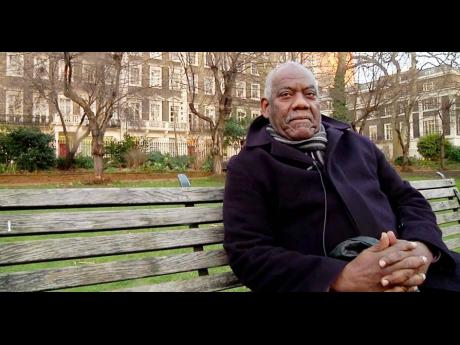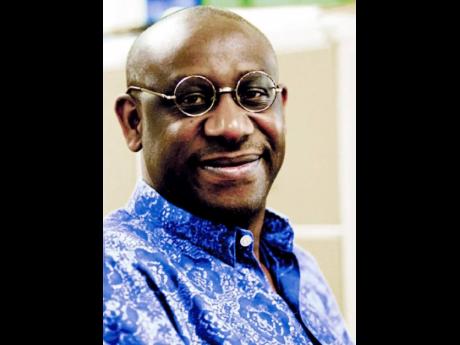Adekeye Adebajo | Selwyn Cudjoe as heir to C.L.R. James
On a chilly spring day, I arrived in the salubrious setting of Wellesley College in Massachusetts to honour towering Trinidadian Pan-African scholar, Selwyn Cudjoe, who was retiring from the liberal arts institution after 38 years, having earlier taught at Cornell, Harvard, Brandeis, and Ohio. A stellar group of academics and former students gathered in the college’s Collins cinema to pay tribute to this unassuming don.
CUDJOE: PAN-AFRICAN PROTEST POET
Kellie Carter Jackson, the African-American chair of Wellesley’s Africana Studies department - which Cudjoe had previously headed and helped to build into a strong unit - praised his outspoken courage in making the college more diverse. Other colleagues – who had nicknamed the Trinidadian “human library”- spoke of his uncompromising and principled anti-racism battles, as well as his consistent insistence on “Speaking truth to power”. Cudjoe himself quoted African-American scholar-activist, Frederick Douglass’ maxim: “Power concedes nothing without a demand”. His long-time colleague, William Cain, described him as a consummate writer whose pioneering work on Caribbean literature had transformed and reconceptualised the field, before describing him as a “connection-maker, community organiser, collaborator”. Trinidadian-American scholar, Carol Boyce-Davies, highlighted Cudjoe’s enormous contributions to Caribbean feminist literature.
Barbadian historian, Hilary Beckles, placed Cudjoe – whom he described as a “legend” - among a Pantheon of post-slavery Trinidadian scholars from J. J. Thomas to C. L. R. James to Eric Williams, before praising him as “an architect of diversity and democracy … an intellectual of the African Renaissance”. Nigerian literary scholar, Biodun Jeyifo, placed Cudjoe among a handful of “humanistic progressive scholars.” Several of Cudjoe’s students gave glowing tributes about how their uncompromisingly rigorous teacher had inspired them and changed their lives through his dedicated mentorship. Cudjoe had brought scholars such as Derek Walcott, Chinua Achebe, Martin Bernal, and Lewis Gordon to the campus, introduced a Pan-African-influenced multicultural course requirement for all students, and fought for the appointment of black faculty and deans. His mantra had been “to serve rather than be served”.
CLR: MADE IN THE CARIBBEAN
My presentation at the conference focused on Cudjoe’s relationship with his great literary hero, C.L.R. James, the pioneering post-colonial studies scholar-activist on whom Cudjoe had co-edited the 1991 book, C. L. R. James: His Intellectual Legacies. Palestinian-American intellectual, Edward Said, had called James “a centrally important 20th-century figure, a Trinidadian black whose life as a scholar of history, political activist, cricket player and critic, cultural maverick, restless pilgrim between the West and its former colonial possessions in Africa and America, is emblematic of modern existence itself”
Both James and Said – like Cudjoe himself - were deeply steeped in the Western literary canon, while seeking to mediate the struggle between the Occident and the Third World. C. L. R. and Cudjoe both embody formidable dyed-in-the-wool Pan-African scholar-activists, with Cudjoe engaging fearlessly in debates through his regular column in the Trinidad and Tobago Express. Both C. L. R. and Cudjoe have an impressive breath of scholarly interests, arguing forcefully for Pan-African struggles to be located within universal contexts.
Cudjoe’s essay in my 2020 edited book The Pan-African Pantheon: Prophets, Poets, and Philosophers was titled “C. L. R. James: With Africa on His Mind”. Eloquently written and tightly argued, his two main purposes were to place C. L. R. in his proper historical, political, and social context as having been “Made in the Caribbean” and not in London; and to demonstrate C. L. R’s life-long anti-racist Pan-African commitments, while seeking to contextualise these battles within global class struggles.
Cudjoe starts by condemning the greed of philistine, plundering politicians and a parasitic private sector in his homeland of Trinidad and Tobago who destroyed the national treasure of C. L. R’s family home in 2016, while continuing to honour French slave-owner Charles de Loppinot after whom a major street is still named.
Cudjoe criticises the complacency of a cowed, compliant citizenry seemingly unaware of the importance of protecting its rich cultural heritage. He then condemns the failure of many scholars to place C. L. R. within the context of the first 31 years of his life spent in his Trinidadian homeland. Cudjoe insists that, “language and literature were vibrant aspects of the life of 19th-century Trinidad … It was a society in which the literary … and the cultural were valued, and appreciated”, as elegantly demonstrated in his 2003 book, Beyond Boundaries. Cudjoe then cites some of the black Trinidadian intellectuals who had inspired the young C. L. R. : Charles Warner, L.B . Tronchin, Michael Maxwell Philip, and John Jacob Thomas.
Cudjoe assesses C. L. R.’s 1938 masterpiece on the Haitian Revolution, The Black Jacobins, which created only the second independent republic in the Americas. James had written the book in the hope that it would help Africans on the continent throw off their own colonial chains. Cudjoe notes that C. L. R had written the play, Toussaint LÓuverture: The Story of the Only Successful Slave Revolt in History, on the leader of the Haitian Revolution, four years earlier. For him, both works were clearly extensions of thinking that C. L. R. had already done in Trinidad.
CLR AND CUDJOE: PAN-AFRICAN PROPHETS
Cudjoe reminds us that James noted that his thoughts were not very ordered in the Caribbean, and that only when he arrived in London and read Marx, Lenin, and Trotsky (whom he later met in Mexico), did he begin “to develop a coherent view of the world”. Cudjoe, though, refocuses our attention back to C. L. R’s intellectual influences, such as fellow Trinidadian, George Padmore, with whom James had grown up in their ancestral village of Tunapuna, and with whom he would reunite in London to build the Pan-African movement alongside Ghana’s Kwame Nkrumah, Kenya’s Jomo Kenyatta, and others.
Citing C. L. R’s profound understanding of the place of Padmore, Marcus Garvey, Aimé Césaire, and Frantz Fanon within the Pan-African Pantheon, Cudjoe quotes James noting: “I have long believed that there is something in the West Indian past, something in the West Indian environment, something in the West Indian historical development, which compels the West Indian intellectual, when he gets involved with subjects of the kind, to deal with them from a fundamental point of view, to place ourselves in history.” C. L. R. often highlighted the contributions of West Indians in developing Pan-Africanism, noting that Caribbeans had used their “exceptional familiarity with Western thought, expression and organisation” to assist the African struggle at a crucial moment in history.
Cudjoe also wrote on C. L. R’s 1963 classic, Beyond A Boundary. Standing on a chair from the age of six, James viewed the world from his childhood home in Tunapuna overlooking the cricket pitch. Sport is a momentary high, liberating its players from prejudice while they are within the boundary of the game. Beyond the cricket pitch, however, still exists the unequal world of white oppression. Cudjoe similarly argued that black West Indian subalterns used cricket to develop their own culture to challenge the British-inherited one. Playing cricket was, for him, a means of West Indian self-realisation.
Cudjoe traces C. L. R’s 17-year sojourn in America, where the Marxist James pushed for the self-determination of African Americans; worked with trade unionists to emancipate workers in Detroit; and wrote about how to build an international labour movement. He notes how James spent a decade in England before and after the US, before returning to Trinidad in 1958 to work with its scholar-politician, Eric Williams, and the nationalist movement. He, however, left Port of Spain after only four years following a spat with the nationalists, living out his days in London’s Caribbean-dominated Brixton district. Cudjoe reminds us that it was only after he died that C. L. R’s work received global attention.
Among Cudjoe’s most endearing qualities are his uncompromising commitment to intellectual rigour and respect for diverse ideas: qualities similar to those of C. L. R. As this recent Wellesley symposium demonstrated, Cudjoe has been generous with his mentorship, scrupulously meticulous in his research, and like C. L. R., deeply committed to his vocation as a public intellectual.
Professor Adekeye Adebajo is a Senior Research Fellow at the University of Pretoria’s Centre for the Advancement of Scholarship in South Africa. Send feedback to columns@gleanerjm.com


